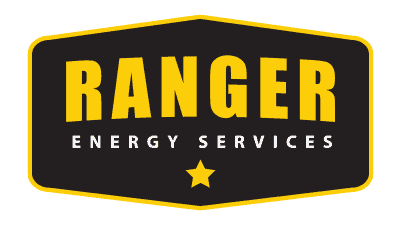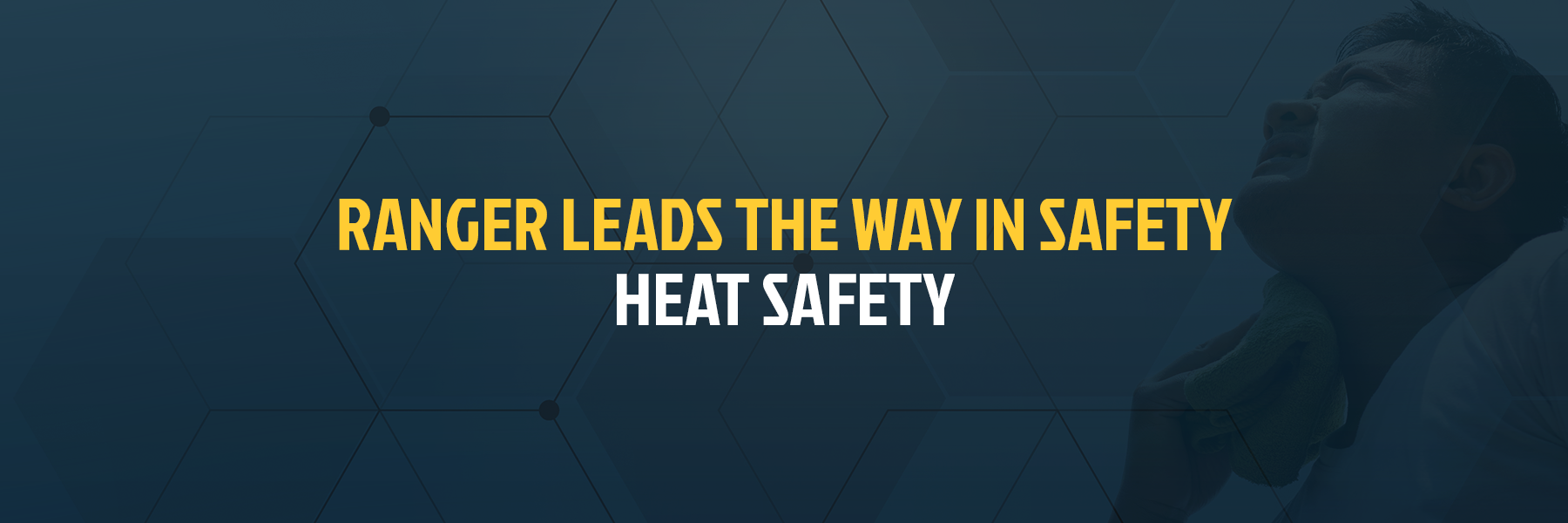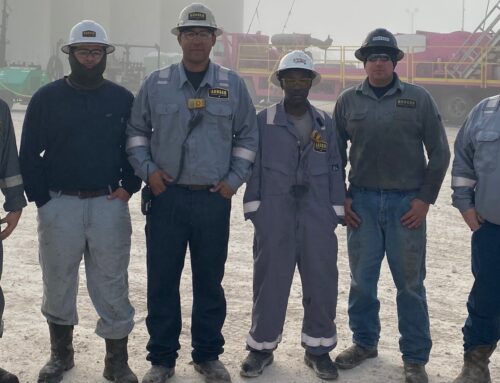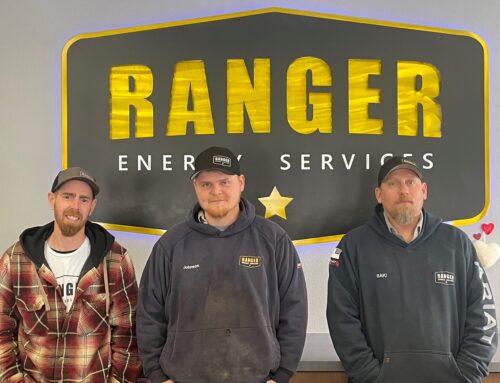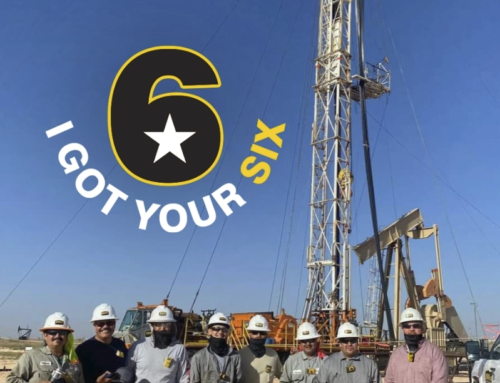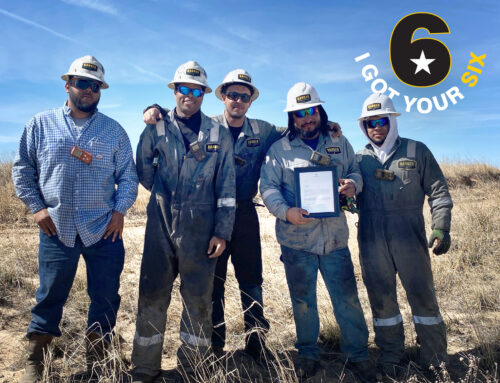It is officially the dog days of summer, and the heat is here. Whether you’re working outside in the oilfield or not, it is essential to keep cool and protect yourself and others from heat-related illnesses such as heat exhaustion and heatstroke. Understanding the warning signs and the difference between heat exhaustion and heat stroke will help you know what to do once you feel the heat coming on. NOTE: people who have experienced a previous heat-related illness are much more susceptible to heat.
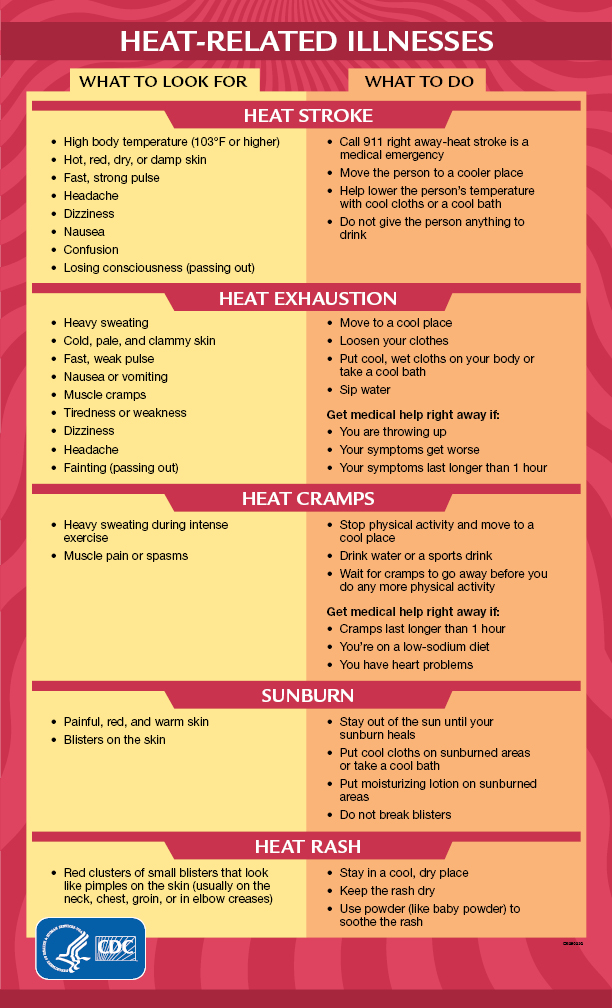
Heat exhaustion is when your body is generally beginning to overheat and cramp up. You may notice:
- Heavy sweating
- Cold, pale, and clammy skin
- Fast, weak pulse,
- Nausea and vomiting
- Cramps
- Tiredness, weakness, dizziness, headache, and unconsciousness
Even more severe is heatstroke. When your body temperature reaches 104 degrees Fahrenheit, it can be deadly. If you suspect someone has heatstroke, call 911 immediately. Symptoms can include:
- Extremely high body temperature – above 103
- Red, hot and dry skin with no sweat
- Rapid, strong pulse
- Dizziness, confusion, or unconsciousness
A few precautions you can take to keep cool are to
- Drink plenty of fluids, preferably water or a sports drink. Avoid caffeinated beverages and energy drinks – they make you more prone to dehydration which worsens symptoms of heat-related illness. Hydrate before, during, and after strenuous activities.
- Find shade such as a cool-down trailer or a popup tent
- Limit your exposure to the sun by wearing sunblock and appropriate clothing. Wearing light-colored clothes allow your body’s temperature regulation process to work more efficiently.
- Take breaks from the sun and get into an air-conditioned space
- ACCLIMATE!! If you have not worked in the heat for an extended period of time, give your body adequate time to acclimate. Stop Work Accountability is imperative if you or your coworkers are showing early signs of heat stress.
Treatment for heat-related illnesses can be the difference between mild first aid care and life-threatening emergencies.
- Remove the affected person to a cool, dry area (preferably air-conditioned or with a fan).
- If the affected person is conscious, give them water
- Remove restrictive clothing
- Cool the individual with cool water-soaked towels or by misting with cool water.
- NOTE: heatstroke is a true medical emergency that requires IMMEDIATE rapid cooling. If possible, immerse the individual in cold water to reduce their core temperature. If immersion isn’t feasible, place ice packs around major arteries found in the neck, under the arms, and in the groin area. Call emergency services immediately
At Ranger, we try to ensure our employees and crew understand the importance of safety while out on the job and in extreme heat. We provide our crews with Pedialyte for replenishing electrolytes, encourage frequent breaks in a cool area such as an air-conditioned dog house or cooling trailer to replenish fluids, and are beta testing camelback drink dispensers in South Texas. We discuss the hazards of excessive heat every day in our pre-job JSA.
The Ranger JSA requires each employee to conduct an “IMSAFE” fit for duty declaration. Any employee who answers “FALSE” to the IMSAFE declaration will not be allowed on Customer property until being cleared to do so by the Corporate HR and QHSE Departments.
I – Injury/Illness: “I do not have any injuries, illnesses, phobias, or symptoms of illness that may affect my ability to safely perform my job functions.”
M – Medications: “I have not taken any medications (over the counter or prescription) that may affect my ability to safely perform my job functions.”
S – Stress: “I am not under any psychological pressure as a result of financial disparity, health-related issues, or family disorder that may affect my ability to safely perform my job functions.”
A – Alcohol: “I have not consumed alcohol within the past eight (8) hours OR within the past twenty-four (24) hours while off duty resulting in ill effects that may affect my ability to safely perform my job functions.”
F – Fatigue: “I have received adequate rest to allow me to safely perform my job functions.”
E – Eating/Hydration: “I have eaten well enough to sustain me through the rigors of my job functions, I have avoided heavy meals that may result in sluggishness, and I have consumed substantial amounts of fluids to safely perform my job functions.”
Learn more about Ranger’s extensive QHSE Management System
Resources:
